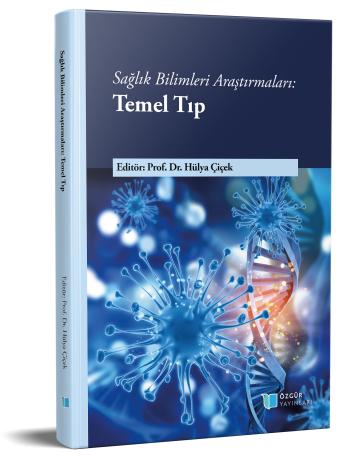
Is Zinc Deficiency Related to Thyroid Dysfunction?
Chapter from the book:
Çiçek,
H.
(ed.)
2023.
Health Science Research: Basic Medicine.
Synopsis
Thyroid hormones an important role in the development and maintenance of nearly all tissues. Thyroid disorders affect almost all endocrine glands, such as the pituitary gland. Thyroid disorders are increasingly common endocrine abnormalities in all groups in the community. Normal thyroid status depends on the presence of many trace elements to continue the synthesis and metabolism of thyroid hormones. Some trace elements such as zinc (Zn) and copper (Cu) have important roles in regulating biological processes, maintaining normal thyroid function and preventing thyroid diseases. Zn, tetraiodothyronine (T4) acts as the cofactor of the enzyme involved in the conversion of triiodothyronine (T3). Moreover, Zn plays a role in the conversion of pre-prothyrotropin-releasing hormone (TRH). Thyroglobulin (Tg) and thyroid peroxidase (TPO) are two important thyroid-specific proteins and regulate the information transfer process from tissue-specific DNA to RNA in thyroid hormone. In this information transfer process, transcription binding factors containing zinc bound to cysteine are involved. Besides, the increase of thyroid binding proteins increases serum thyroxine levels and Zn is also affected by this increase. In the studies conducted that different results have been determined regarding the effect of zinc on TSH, T3 and T4. The aim of this review is to evaluate whether zinc deficiency has an effect on thyroid dysfunction in accordance with current literature.

